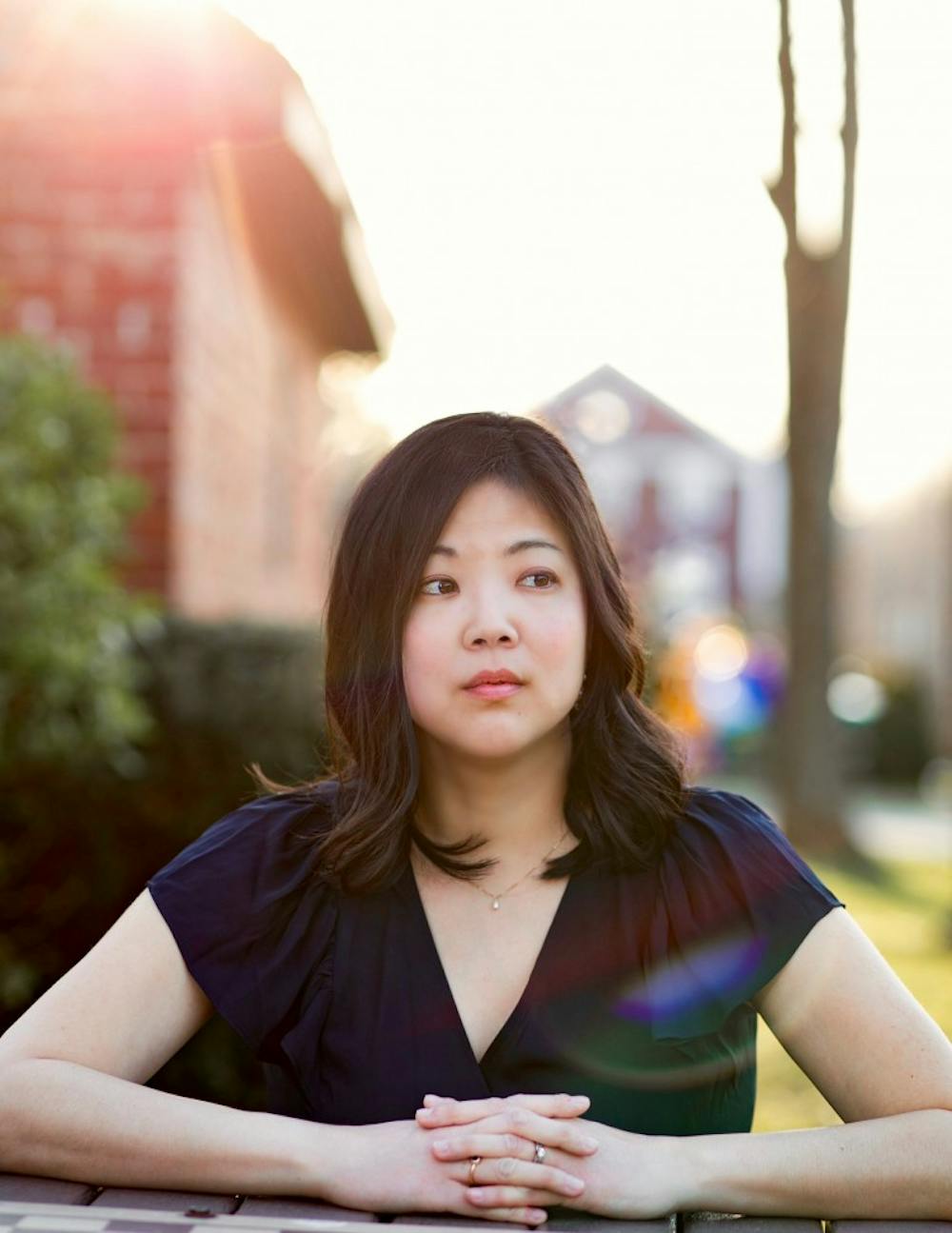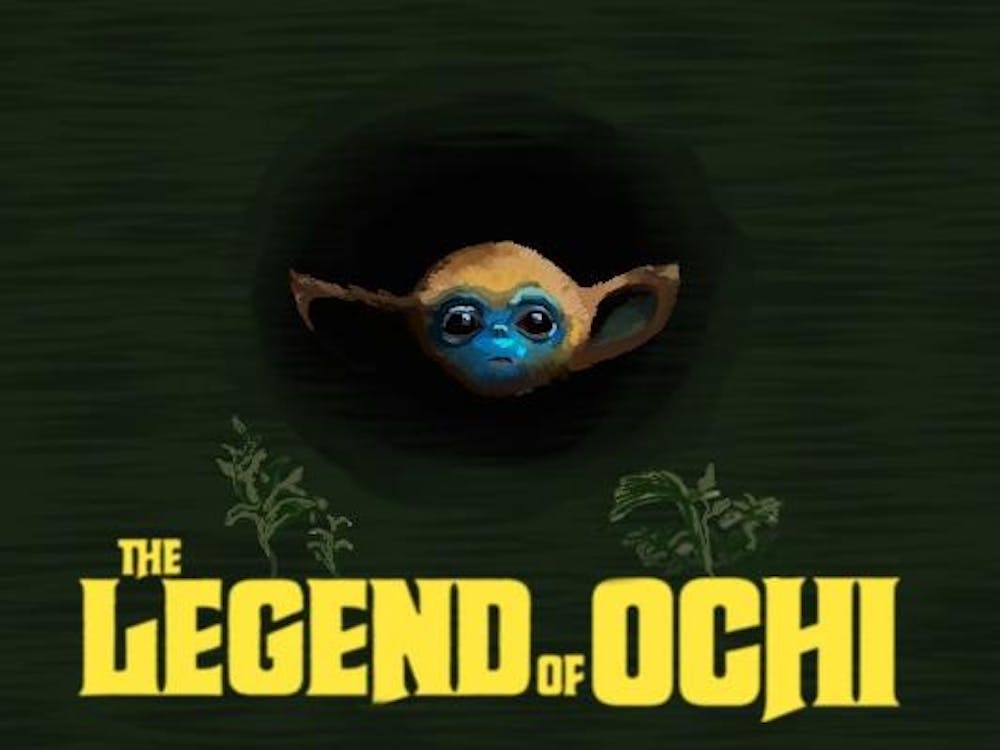Nicole Chung’s debut memoir, “All You Can Ever Know,” is a work of magnificent empathy. Its title comes from a phrase that she heard repeatedly while growing up — born to recently immigrated Korean parents and adopted by white Oregonians, she was raised to believe that the story of her adoption was somewhat sad, but ultimately a divine inevitability. She was simply told that her birth parents “thought they wouldn’t be able to give you the life you deserved,” and her Catholic adoptive parents viewed Chung’s arrival into their lives as the result of God’s grand plan.
As a married adult on the cusp of motherhood, Chung decided to embark on a search for the biological family that seemingly left her behind, and “All You Can Ever Know” chronicles her discoveries. She intertwines her search for the truth alongside her perspective as a Korean-American girl growing up within a largely white community during the 80s and 90s, unable to identify her experiences of bigotry and alienation as “real racism,” and also introduces the parallel story of Cindy, the sister she never knew she had and to whom she eventually becomes profoundly close — a found sisterhood that forms some of the book’s most tender and fully-realized moments.
Chung is an exceptionally warm and observant writer, exploring her deeply particular questions surrounding identity, lineage and memory with the kind of open-hearted sincerity that will make anyone — not just adoptees — reconsider what they take for granted within their own families. Arts and Entertainment recently got the chance to chat with Chung via email about what went into crafting this radiant and intensely personal debut.
Arts and Entertainment: So much of this memoir moves like a novel, and you structure the narrative in a way that prompts the reader to unravel the mysteries of your family history right alongside your past self. That choice felt especially forceful and moving in the chapters where you’re assuming Cindy’s perspective — how did you decide that you wanted to make this book inhabit her point of view? And what difficulties, if any, did you find when crafting those parts of the book that drew from memories other than your own?
Nicole Chung: I always knew my sister's story would come into this, because so much of what I learned was not just about her but because of her — she was really the one who gave me the most information about our family in the years and decades after my adoption. I was a little surprised when I wrote the first micro-chapter from her perspective and found that I loved it, and then those interstitial pieces continued to show up in the first two-thirds of the book. I loved getting to tell our story from her perspective as well as mine, showing our two separate journeys and hopefully foregrounding the moment when they would finally intersect. I also really loved writing the early chapter entirely from my parents' perspective. It felt important to show the reader who all these people are — and not just in relation to me, but before I actually entered their lives.
It was challenging at times, but of course you can't write an adoption memoir that doesn't include your family. And I didn't want to write a memoir in which I was the only character given depth and nuance and complexity, full humanity. I did want to make sure my sister in particular was okay with everything I wrote, and I asked her permission before writing about various parts of her story. I shared a very early draft with her as well as our father, and checked in a lot while editing too, to make sure it was still okay and to give her a chance to change her mind or add/clarify details. My adoptive parents, too, got an early draft and had the opportunity to give feedback or offer corrections; in the end they didn't ask me to change anything, but I still wanted them to see it well before publication. It was still even scarier than I thought it would be, attempting to tell this story and do everything and everyone some kind of justice.
AE: I started following your work because I fell in love with your essays at the The Toast, so I’m curious to know how you figured out that the story at the heart of “All You Can Ever Know” needed to become a book-length memoir. Was there a specific moment when you realized you needed that much space to navigate your family history, or was it a more sustained process of self-discovery?
NC: Thank you so much for this great compliment! And R.I.P., The Toast! I am not sure I ever would have had the gumption to pitch or write this book without the support of that amazing community and those generous readers.
I cannot remember a specific moment when I thought, "This should definitely be a book!" — honestly, I wish I were the kind of writer who always felt 100% assured of the worth of whatever it is I have to say, but I am not, always. Every time I wrote about adoption, though, I got a lot of interesting feedback and even more questions, and gradually I realized that telling the story bit by bit wasn't enough — because it was just that, a story, with a beginning and an end and a clear if complicated arc, and an essay did not provide the context necessary for readers to understand all I hoped they would. And of course I had long been aware that most mainstream adoption narratives have been shaped and dominated by non-adoptees, and for all sorts of reasons I thought that needed to change. No single book can do that, but I thought, okay, maybe my book can be one small part of the shift we need.
AE: Though I’m not adopted, so much of what you wrote about growing up as a bookish Asian girl and yet being unable to imagine yourself as a worthy heroine resonated with my own experience. One line from the first part of the book particularly struck me — it’s when you write that “the most important thing my expanding creative life gave me as a girl, in terms of survival, was the permission to imagine a world I simply could not see in my white hometown.” When you first started out as a writer, what other experiences helped you establish your own sense of identity and unpack those assumptions of a white default?
NC: I have written about the life-giving experience of finding representation, especially when you have been conditioned not to expect it. I really did not find it in books until I was older. But Kristi Yamaguchi was my hero when I was a little kid, and watching her win Olympic gold was definitely a moment that stayed with me — a moment that made me start to believe my own dreams were possible; that even outside that "white default," I could make a space for myself. Other than a few other instances like that, a TV sidekick here or a random story character there, writing was really it until I got older, left my hometown, met other Asian Americans and other people of color in large numbers, and found more books by Asian American writers.
In college I studied history and wound up taking a lot of courses focused on colonization and slavery — I can't overstate the impact that had on me, as someone who grew up in a conservative white family that never really talked about history or acknowledged racism, let alone how it has always established and upheld violence and systems of oppression. I read more in the decade after college; I wasn't really writing yet, I was mostly just thinking and sometimes talking about these topics with friends. I finally had some of the tools and some of the words I needed to describe my experiences and my own privilege, to reconsider my identity as a transracial adoptee within the framework of white supremacy. When I eventually started writing and publishing on this topic, it gave me more connections, more community, more ways to consider and talk about adoption and race and identity. But I know I still don't have it all figured out — as an adopted Korean American who grew up in very white spaces, I think I will be working all of this out for the rest of my life.
AE: So many works within the genre of the “adoption story” — regardless of whether they’re fiction or nonfiction — assume the perspective of adopting parents, rather than the adoptee. With that in mind, did you look to any existing works as a model for the way you wanted to tell your own story in “All You Can Ever Know”?
NC: I truly didn't have many models for how I wanted to write this memoir, in part because it's memoir and thus so personal, and in part because, as you say, there aren't many literary treatments of adoption written by adopted people. In terms of how I wanted the story to come to life, to unfold on the page, I was probably most influenced by literary fiction I've read and loved. Which is not to say I tried to emulate those authors, or assume their voices — that wouldn't have worked, anyway; you can always tell when a writer's voice isn't right, isn't theirs — but I did try to think about how novels I've loved have introduced characters, built tension, revealed information, and then incorporate these essential storytelling elements into my own work of nonfiction.
Chung will read at New Dominion Bookshop Oct. 19 alongside poets Lindsay Bernal and Caitlin Neely.







